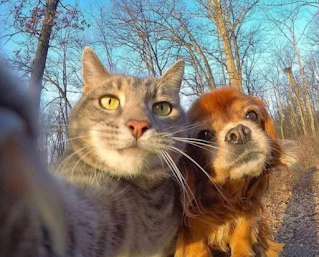Autism in animals is a controversial and complex topic. While there is ongoing research exploring autism-like behaviors in animals, it is important to note that we cannot definitively diagnose animals with autism as we do in humans.
Some studies suggest that certain animals exhibit behaviors that resemble those seen in humans with autism, such as repetitive movements, social difficulties, and heightened sensitivities.
However, further research is needed to fully understand the nature and implications of these behaviors in animals. It is essential to approach this topic with caution and consult experts in the field for an accurate assessment.
Can animals have autism?
It is currently not recognized in the scientific community whether animals can have autism. Autism is a complex neurodevelopmental disorder that affects human behavior and social interactions.
While animals can exhibit similar behaviors or traits, it is important to note that these may have different underlying causes and should be evaluated by a veterinarian.
There is ongoing research in animal behavior and cognition, but more studies are needed to understand the potential presence of autism-like conditions in animals.
There are animal models genetically bred to exhibit autistic traits, such as rats, fruit flies, monkeys, and mice.
In clinical research, mice with mutations in autism-linked genes show signs of repetitive behaviors, deficits in social interaction, memory deficits, and increased aggression.
Canine autism:
A recent study suggests evidence of canine autism.
The study examined tail-chasing behaviors in bull terriers and found associations with trance-like behavior and random outbursts of aggression.
Similarities with human ASD:
Tail chasing was more common in male bull terriers, similar to human autism spectrum disorders (ASDs).
Physical features of bull terriers could be indicative of Fragile X Syndrome, a genetic condition often associated with autism.
Possibility of autism in the animal kingdom
Autism may naturally exist in the animal kingdom, although there is limited evidence.
Diagnosing autism in animals may be challenging, as it is in humans.
Sign Autism in animal
There is currently limited research on animals and autism, but some studies suggest that animals may exhibit behaviors similar to those seen in humans with autism. These behaviors can include repetitive movements, reduced social interactions, and difficulty with communication.
However, it is important to note that autism is a complex neurodevelopmental disorder that has primarily been studied in humans. While animals may display behaviors that overlap with autism, it is not yet well understood if they experience the same underlying condition.
Further research is needed to fully understand the presence and impact of autism in animals.
Canine autism treatment
Canine autism treatment is a relatively new field, and research is still ongoing to understand and develop effective treatment strategies. Currently, there is no specific treatment for canine autism.
However, behavior modification techniques, such as positive reinforcement training, can help manage and improve behavioral issues commonly associated with autism in dogs.
Additionally, providing a structured and consistent environment, along with appropriate socialization, exercise, and mental stimulation, can enhance overall well-being and reduce anxiety in dogs with autism-like behaviors.
It is important to consult with a veterinarian or a certified animal behaviorist for personalized guidance on managing and supporting dogs with autism.
